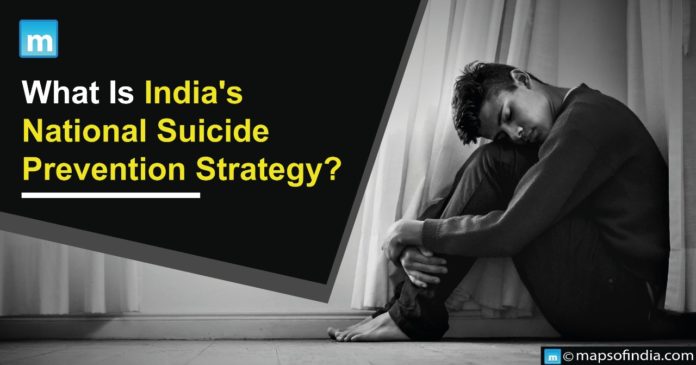The National Suicide Prevention Strategy is the first plan the administration developed to address suicide control as a public health concern. The Ministry of Health launched it on November 21.
What is India’s national strategy for preventing suicide?
The government claims to provide the groundwork for promoting mental wellness and preventing suicides in the next ten years. By 2023, the policy hopes to minimize suicide fatality in the nation by 10%. The strategy offers a foundation for several stakeholders to carry out initiatives for the nation’s suicide prevention.
Objectives of the Strategy
- First, it aims to set up efficient suicide tracking systems during the following three years.
- Within the next five years, it aims to create psychiatric clinic units throughout all districts to offer suicide prevention treatments under the District Mental Health Initiative.
- It seeks to implement a mental health syllabus in all academic institutions in the following eight years.
- The strategy’s fourth goal is to increase suicide monitoring and continue evidence development via assessment, guaranteeing system quality improvement.
Participants in the implementation plan
The National Suicide Prevention Strategy’s operational structure identifies five significant stakeholders in charge of achieving the goals. These include NIMHANS-Bangalore, strategic partners, other leading mental health institutions, central ministerial partners, state and district governments, district-level governments, and state and central agencies.
Implementation strategy
- Strengthening institutional capability, institutional alliances, and leadership across the nation; increasing the ability of health providers to offer suicide prevention agencies.
- Increasing cultural and community support for efforts to prevent suicide and lessen the stigma attached to such actions.
Indian suicides: What is the situation right now?
According to the Indian Express, the National Crime Records Bureau’s (NCRB) yearly survey, published in August, 1.65 lakh persons committed suicide in 2021, a 7.2% rise from 2020. This is 6.8 times the total number of maternal fatalities (23,800) in the same year and 10% more than the country’s COVID fatalities (1.48 lakh) in 2020.
According to NCRB research, more than 100,000 individuals across the country commit suicide each year. In the 53 metropolises nationwide in 2021, 25,891 fatalities were recorded, with Delhi recording the highest number. The country’s suicide incidence has surged from 10.2 to 11.3 per 100,000 people in the last three years. Most suicides in the country are committed by young and middle-aged individuals, with 65% of suicides recorded in the age range of 18 to 45 years in 2020.
Active measures in the country to prevent suicide
Prevention of mental diseases, decrease in suicide and suicide attempt, and other core priority areas are highlighted in the National Mental Health Plan (2014). Some crucial adjustments were made thanks to the Mental Healthcare Act of 2017. The Act became operative in May 2018 and essentially made suicide attempts no longer considered crimes within Section 309 of the IPC. It ensures rather than being convicted or penalized, the government provides those who have considered suicide options for restoration.




